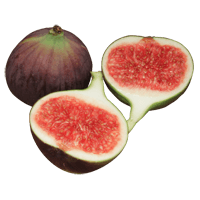How Much is the Glycemic Index of Pomegranates?
The glycemic index of pomegranate as a fruit has not yet been researched. However, conclusions can be drawn about how pomegranates affect blood glucose based on studies.
The Canadian Diabetes Association also classifies pomegranates as a low glycemic index fruit (1).
According to the study, polyphenols in pomegranate have anti-diabetic and blood glucose-regulating properties (2).
A single dose of pomegranate juice intake reduces fasting glucose and increases insulin in healthy young adults. A study has suggested that components from pomegranate juice may regulate glucose metabolism, as it demonstrated a lower glucose response compared to an identical amount of sugar in water (3).
Another study has shown similar results, finding that fresh pomegranate juice increases insulin levels and ameliorates insulin resistance in people with impaired fasting glucose (4).
However, another study has shown that pomegranate polyphenol supplementation may be important in reducing diabetic complications associated with cardiovascular disease (5).
The pomegranate seed oil also has anti-diabetic properties by reducing hyperglycemia (6).
Research has found that supplementary treatment with pomegranate seed powder has beneficial effects on the blood glucose of patients with type 2 diabetes (7).
Overall, even though the exact glycemic index of pomegranate is unclear, pomegranate products have consistently expressed anti-diabetic activities and, in moderate consumption, can be recommended to people with diabetes.
References
- The glycemic index (GI)
- https://pubmed.ncbi.nlm.nih.gov/29021286/
- https://academic.oup.com/cdn/article/4/Supplement_2/486/5845205
- https://onlinelibrary.wiley.com/doi/full/10.1002/fsn3.134
- https://core.ac.uk/download/pdf/215262633.pdf
- https://www.researchgate.net/publication/337224018
- https://www.karger.com/Article/Abstract/510986



